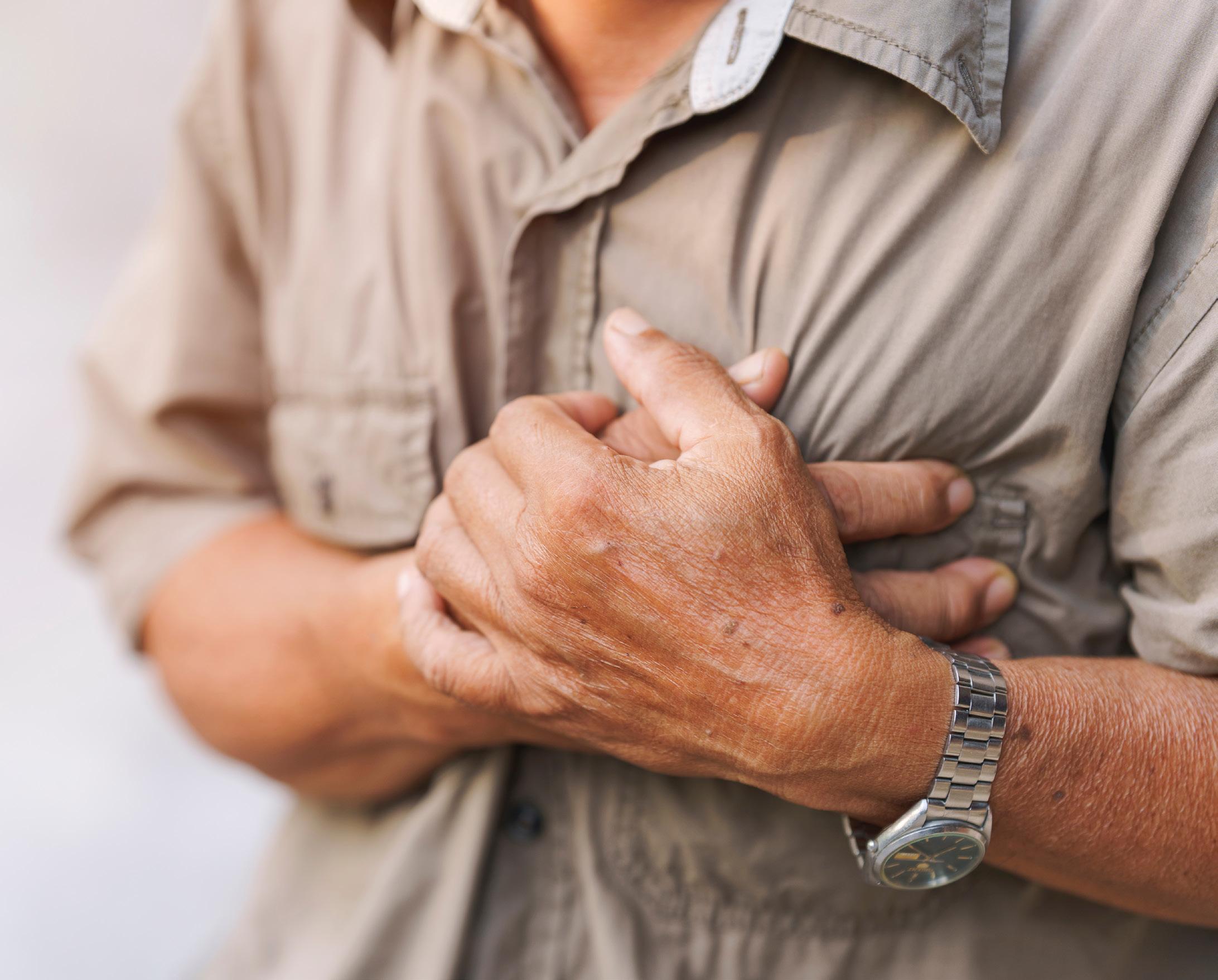
3 minute read
Keeping the Rio Grande Valley's Beat Strong
February is American Heart Month, and there’s no better time to pay attention to this all-important organ. South Texas Health System Heart(R) is here to help you do that. The Valley’s first and only freestanding facility dedicated to heart care, we set a high standard of care for the community.
Heart disease affects millions of men and women in the United States – and many are unaware that they have it.* Another eye-opening fact? The average person waits three hours before seeking help for symptoms of a heart attack, according to the Centers for Disease Control and Prevention (CDC).
For nearly 30 years, the cardiovascular care teams at STHS Heart have provided quick treatment to Valley residents experiencing heart attacks to prevent or limit muscle damage and save lives.

Time Means Muscle
The heart is made up of muscular tissue. During a heart attack, when the heart is deprived of oxygen and blood, irreversible damage can occur to the heart’s muscle tissue within a short period of time.
STHS Heart recently was reaccredited with Chest Pain Center Accreditation with Primary Percutaneous Coronary Intervention (PCI) by the American College of Cardiology for demonstrating continued expertise in treating patients with chest pain.
To earn the accreditation, a facility must be able to perform primary PCI procedures 24/7. PCI, also known as angioplasty, is an intervention that opens blocked arteries.
The amount of time it takes to get a patient from the hospital entrance to artery-clearing angioplasty is known as Door to Balloon (D2B) time. STHS Heart consistently achieves D2B times below the national standard.
Understand Symptoms and Risks for Heart Disease
Chest pain or discomfort in the center or left side of the chest is the most common symptom of a heart attack. It can feel like pressure, squeezing, fullness or pain.
Chest pain paired with other symptoms like pain or discomfort in the jaw, neck, back, shoulders or one or both arms are especially strong warning signs of a possible heart attack, requiring immediate medical attention.
Heart disease – which affects nearly half (47%) of the U.S. population, according to CDC – can cause symptoms that vary by condition. These can include chest pain, irregular heartbeat, shortness of breath, fatigue, dizziness, and fainting.
Top risk factors for heart disease are high blood pressure, high cholesterol, and smoking. Others include having diabetes, being overweight, an unhealthy diet, physical inactivity, and excessive alcohol use.
Time Means Muscle
An estimated 80% of cardiovascular disease, including heart disease and stroke, is preventable, according to the World Heart Federation. The key components of prevention are a healthy diet, physical activity, avoiding tobacco and “knowing your numbers.” (This refers to cholesterol levels, blood pressure, body mass index and blood sugar level.)
In addition to emergency cardiac care, STHS Heart provides services focused on keeping you heart-healthy:
• Cardiac catheterization laboratories
• Cardiac rehabilitation and education
• Congestive Heart Failure Program
• ECMO services
• Electrophysiology laboratory
• Heart disease prevention
• Heart valve disease
• Surgery
• Thoracic surgery
• Vascular services
• Weight-loss surgery
• Women’s heart health
For more information or to find a doctor, visit southtexashealthsystemheart.com
For serious medical emergencies like a heart attack or stroke, go to the nearest emergency room or call 911.
*American Heart Association
Physicians are independent practitioners who, with limited exceptions, are not employees or agents of South Texas Health System The System shall not be liable for actions or treatments provided by physicians For language assistance, disability accommodations, and the nondiscrimination notice, visit our website
1900 South D Street McAllen, TX 78503










